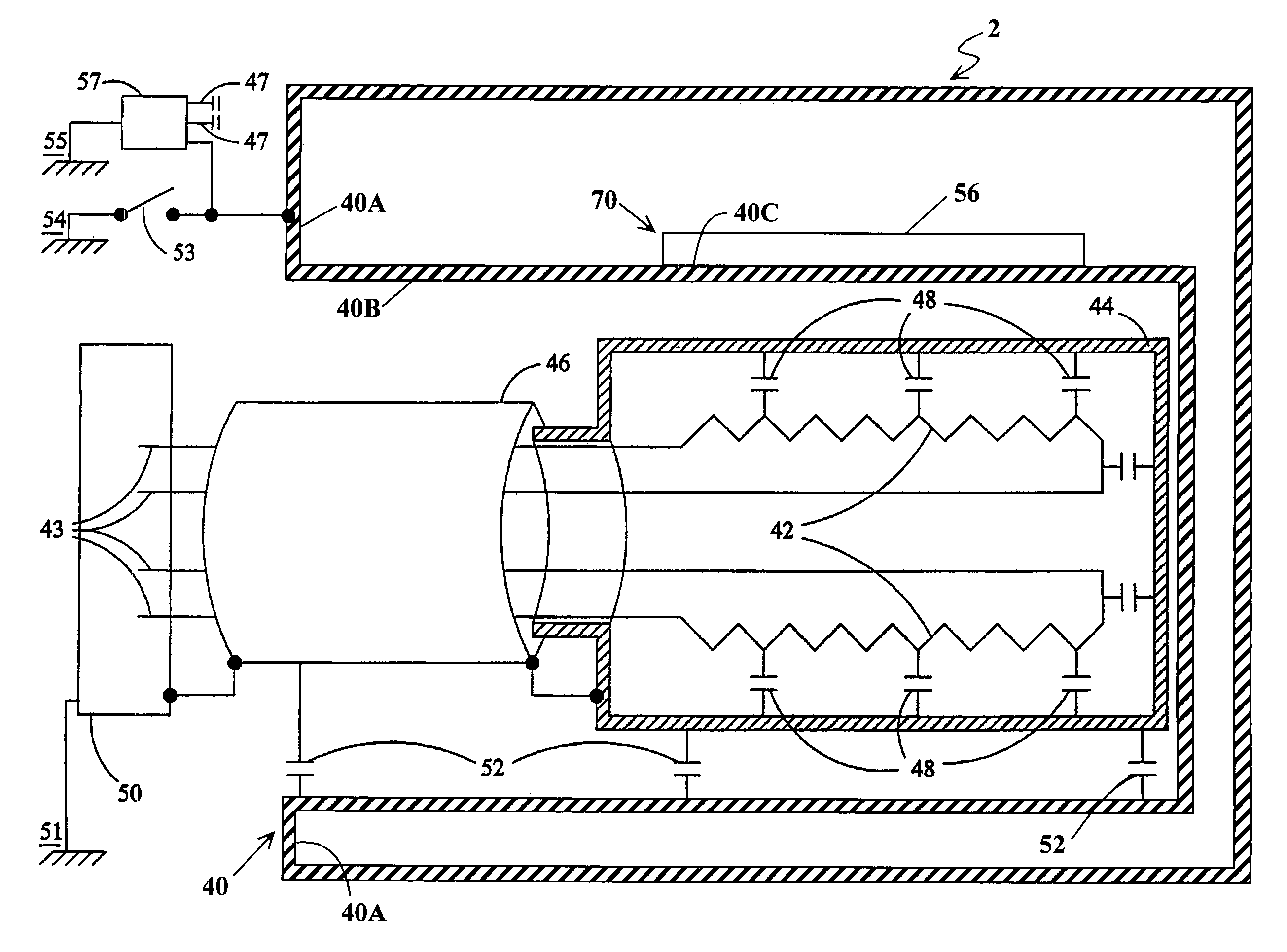Probe station thermal chuck with shielding for capacitive current
a capacitive current and thermal chuck technology, applied in the field of probe stations, can solve the problems of low electrical noise, common noise source, and high noise level
- Summary
- Abstract
- Description
- Claims
- Application Information
AI Technical Summary
Problems solved by technology
Method used
Image
Examples
Embodiment Construction
[0015]As illustrated in FIG. 1, a probe station generally includes an environmental enclosure 2 in which is located a chuck 4 and one or more probes 6. The environmental enclosure 2 is typically constructed of a conductive material and grounded 7 so that the chamber, interior to the enclosure 2, is shielded from electromagnetic fields emanating from outside of the enclosure 2. The chuck 4 typically comprises multiple layers of conductive and dielectric materials that are connected to the various conductors of a coaxial or triaxial cable 8. The chuck 4 includes a securement technique for securing a device under test 10, generally a wafer of semiconductor material, to the upper surface 12 of the chuck 4. The upper surface 12 of the chuck 4 is typically conductive. One technique for securing a device under test 10 relies on a vacuum source (not shown) located outside of the environmental enclosure. The vacuum source communicates through appropriate control valves and piping with apertu...
PUM
 Login to View More
Login to View More Abstract
Description
Claims
Application Information
 Login to View More
Login to View More - R&D
- Intellectual Property
- Life Sciences
- Materials
- Tech Scout
- Unparalleled Data Quality
- Higher Quality Content
- 60% Fewer Hallucinations
Browse by: Latest US Patents, China's latest patents, Technical Efficacy Thesaurus, Application Domain, Technology Topic, Popular Technical Reports.
© 2025 PatSnap. All rights reserved.Legal|Privacy policy|Modern Slavery Act Transparency Statement|Sitemap|About US| Contact US: help@patsnap.com



